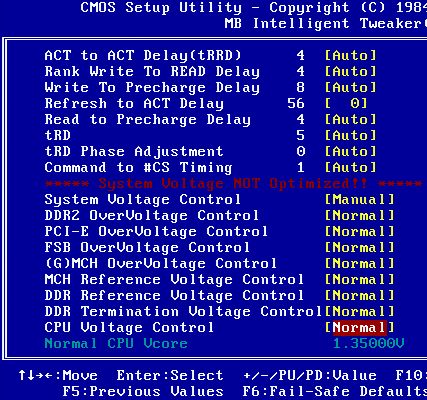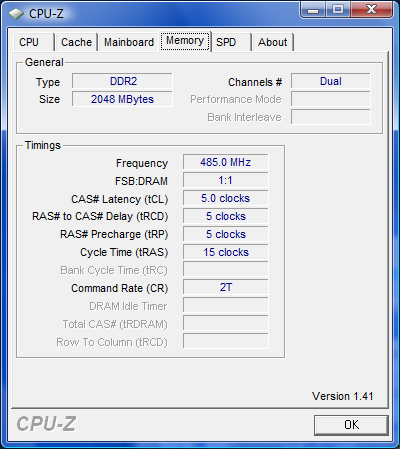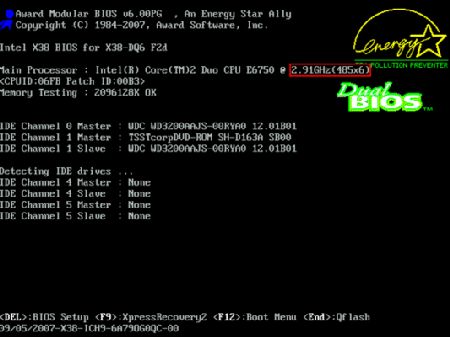Intel X38 Chipset: A Porsche with the Handbrake On
Overclocking - FSB 485 Is The Limit
Since Intel has implemented overclocking support directly into the X38 chipset, we were very interested in determining the maximum FSB speed of the North Bridge. Our overclocking experiment had a disappointing ending, though: the North Bridge of our Gigabyte GA-X38-DQ6 board only reached 480 MHz without a voltage increase.
Even after we tweaked the voltage a little, we were only able to squeeze another 5 MHz out of the board, marking 485 MHz as its upper limit.
For our overclocking test we used A-Data DDR2-1066+ memory, which can easily cope with much higher frequencies. To rule out the CPU as the bottleneck, we used our Core 2 Extreme
QX6850 and Core 2 Duo E6750 samples for our tests, which both use the overclocking-friendly G0 stepping.
You may wonder why we say "only" 485 MHz. Well, we've had much better luck in previous tests. In one of our previous experiments, where we were able to overclock an E6300 from 1.8 GHz to 3.5 GHz using a simple air-cooling solution, we reached an FSB of 500 MHz with our Gigabyte GA 965p-DS3 board based on Intel's old 965 chipset. Stable operation with this board was possible up to an FSB of 490 MHz - a speed at which our X38 sample wouldn't even boot.
It's possible that our X38 board wouldn't boot at speeds above 485 MHz because it isn't optimized for overclocking yet. The board itself, at any rate, carries version number 1.0, which marks it as the retail version you will find in stores.
An FSB of 485 MHz is required in order to overclock a Core 2 Duo E6550 to 3.4 GHz. As the X38 has already reached its limit at this point, it doesn't seem like it will become an overclockers' dream board.
Get Tom's Hardware's best news and in-depth reviews, straight to your inbox.
Current page: Overclocking - FSB 485 Is The Limit
Prev Page PCI-Express 2.0 Next Page New Possibilities For North Bridge CoolingTom's Hardware is the leading destination for hardcore computer enthusiasts. We cover everything from processors to 3D printers, single-board computers, SSDs and high-end gaming rigs, empowering readers to make the most of the tech they love, keep up on the latest developments and buy the right gear. Our staff has more than 100 years of combined experience covering news, solving tech problems and reviewing components and systems.



